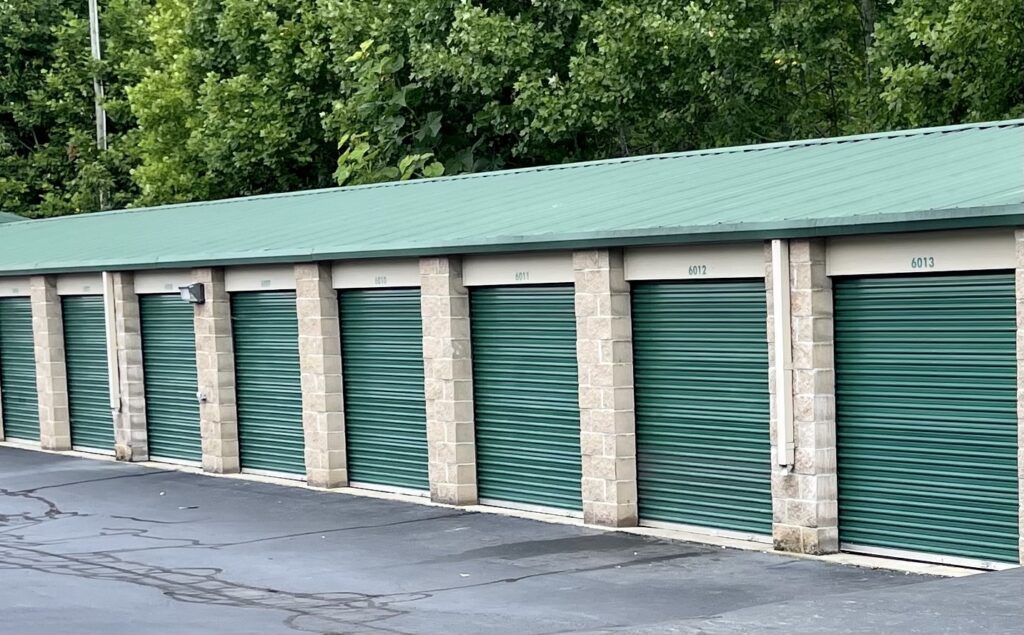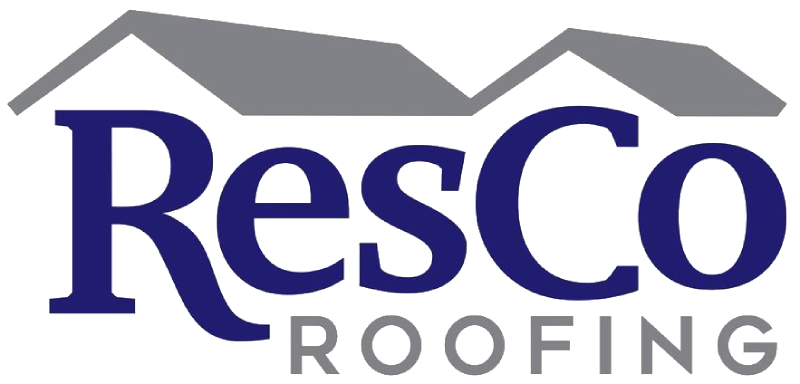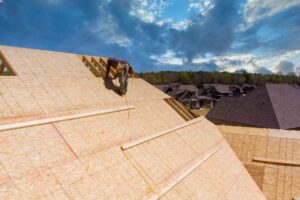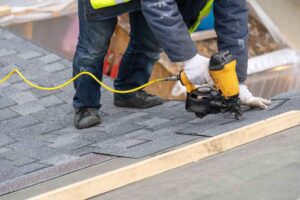Maximizing Home Safety and Value with Trusted Roofing Near Me
In the grand symphony of homeownership, few instruments play such a crucial role as the roof. A good roof is not simply a matter of curb appeal or a luxury design feature; it’s a guardian that shelters your family from storms, both literal and figurative. But, like all guardians, a roof needs tending. It requires the expertise of those who know every shingle, every joint, and every protective layer. Enter the trusted roofing near me, the silent hero of home safety and value.
This blog post is dedicated to demystifying the often-overlooked art of roofing, and to recognize the pivotal role these professionals play. Whether the sun scorches the sky or the rain pours unrelenting, your roof stands as the vanguard of your home. It’s time to ensure that vanguard is unyielding.
Understanding the Importance of a Good Roof
A good roof goes beyond just being the top layer of your home—it’s an integral component that contributes significantly to the overall structural integrity and energy efficiency. It acts as a shield against the harsh elements, safeguarding your home while enhancing its thermal performance. By effectively sealing your home, it ensures warm air stays in during the winter and cool air remains inside during the summer, creating a comfortable living environment year-round. This not only protects your family and belongings from weather-related damages but also plays a key role in reducing the cost of energy bills over time.
Furthermore, a well-maintained roof can dramatically increase the curb appeal and overall value of your property. Its aesthetic appeal enhances the visual appeal of your home, leaving a lasting impression on visitors and potential buyers. A sturdy, well-kept roof not only reassures potential buyers of the home’s quality but also reduces the likelihood of unexpected issues during home inspections. Investing in a high-quality roof and regular maintenance is not just an expense; it is a strategic investment in the long-term safety, efficiency, and value of your home.

Signs that Indicate the Need for Roof Repairs or Replacement
Recognizing the signs that indicate the need for roof repairs or a complete replacement is critical for maintaining the safety, efficiency, and value of your home. Some of these signs are subtle and require closer inspection, while others are unmistakably urgent.
- Shingle Damage: Look out for shingles that are cracked, curled, or missing entirely. This can signify that your roof’s protective layer is compromised, allowing water and debris to infiltrate the underlying structures.
- Sagging Roofline: A sagging roof is a tell-tale sign of structural issues, possibly as a result of long-term water damage. This can pose a significant safety risk and requires immediate attention.
- Water Stains on Ceilings or Walls: If you notice brown, yellow, or grey discolorations on your ceilings or walls, it’s likely that water is finding its way in through a leak in the roof. Over time, these leaks can lead to mold and mildew growth, which can be harmful to your health.
- Increased Energy Bills: An unexplained spike in heating or cooling costs can be a symptom of poor roof insulation. When a roof fails to properly seal your home, expensive conditioned air can escape, driving up your energy usage.
- Age of Roof: Even without visible signs of damage, the age of your roof can be a critical factor. Most roofs are designed to last between 20 to 30 years. If your roof is nearing or has surpassed this age range, it may be time to consider a comprehensive evaluation and possibly a replacement.
Regular inspections by a trusted roofing expert can help identify these signs early, preventing minor issues from escalating into major, costly roof repairs or replacements.
The Role of a Trusted Roofing Expert
A trusted roofing expert is not just a contractor; they are a critical ally in preserving the integrity and value of your home. Their role extends beyond repairs and installations to encompass a comprehensive understanding of roofing systems and materials, ensuring your roof is not only aesthetically pleasing but structurally sound and energy-efficient. With a deep knowledge of the latest roofing technologies and trends, they can recommend the best solutions that align with your home’s needs and your budget.
These professionals conduct detailed inspections to assess the condition of your roof, identifying potential issues before they become severe problems. Their expertise allows for accurate diagnosis and effective solutions, whether it’s repair work or a full replacement. Furthermore, a trusted roofing expert can offer invaluable advice on regular maintenance routines to extend the lifespan of your roof, enhancing your home’s safety and the overall value.
By choosing a reputable and experienced roofing expert, homeowners gain peace of mind knowing their roof is in capable hands. Their investment in quality workmanship and materials pays off in the long run, safeguarding their home against future challenges and preserving its value for years to come.
Tips for Finding the Right Roofing Expert
When the time comes to hire a roofing expert, the choices can be overwhelming. However, finding the right professional is crucial to ensuring your roof is efficiently and correctly repaired or replaced. Here are some essential tips to guide your selection process:
- Check for Licenses and Insurance: Ensure the roofing contractor you consider is licensed to operate in your state and carries both liability insurance and worker’s compensation. This protects you in case of accidents or damages during the project.
- Experience Matters: Look for a roofing contractor with a proven track record of working on roofs similar to yours. Experience often translates to a higher quality of work and a better understanding of customer needs.
- Seek Recommendations: Ask friends, family, or neighbors for recommendations. Personal referrals can provide honest insights into a contractor’s reliability and quality of work.
- Read Reviews and Check References: Online reviews and ratings can be beneficial. Additionally, ask the contractor for references from recent projects to get direct feedback from past customers.
- Warranty Offers: Choose a contractor who offers a warranty not only on the materials but also on the workmanship. This gives you additional protection and assurance in the quality of the work performed.
- Get Multiple Quotes: It’s wise to obtain quotes from several contractors to compare prices, but remember, the cheapest option is not always the best. Evaluate the cost in relation to the quality of materials and service offered.
- Ask About Materials and Options: A reputable roofing expert should be willing to discuss the different materials and options available. They should provide recommendations that meet your needs and budget, without pressuring you into a decision.
Selecting the right roofing expert is a crucial step in ensuring the longevity and durability of your roof. By following these tips, homeowners can make an informed decision, finding a professional who will offer the best solutions for their roofing needs.

Roofing Materials: What to Consider
Choosing the right roofing materials is a crucial aspect of ensuring the durability, aesthetics, and energy efficiency of your home. With various options available in the market, each offering different benefits and drawbacks, making an informed choice requires considering several key factors:
- Climate: The material you select should withstand the specific weather conditions of your area, be it extreme heat, heavy snowfall, or high winds. Some materials are better suited for certain climates than others.
- Aesthetic Appeal: Your roof should complement the overall look of your home. Materials come in a wide range of colors, styles, and textures, allowing homeowners to align their choice with the architectural style of their residence.
- Durability and Lifespan: The longevity of roofing materials can vary significantly, from about 20 years for asphalt shingles to 50 years or more for metal and slate. Consider how long you plan to stay in your home and whether you want to invest in a longer-lasting material.
- Weight: The structural integrity of your home must support the weight of the roofing material. Some materials, like slate or tile, are much heavier than options like metal or asphalt shingles, and may require additional structural support.
- Energy Efficiency: Some roofing materials reflect sunlight better than others, contributing to a cooler home in hot climates and reducing energy costs. Look for materials with good insulating properties or those rated for energy efficiency.
- Environmental Impact: If sustainability is a priority for you, consider eco-friendly options like recycled shingles or materials that have a lower environmental footprint during production and disposal.
- Cost: Finally, your budget plays a significant role in the decision-making process. While more expensive options like metal and slate offer longer lifespans and better durability, they may not be feasible for every homeowner. Understand the initial cost versus the long-term benefits and savings associated with different materials.
By carefully evaluating these factors, homeowners can select the roofing material that best meets their needs, ensuring a durable, aesthetically pleasing, and efficient roof that enhances their home for years to come.
The Roofing Process: What to Expect from a Professional
The roofing process encompasses several critical steps that ensure the longevity and reliability of your new roof. When you hire a professional roofing expert, here’s a general outline of what you can expect:
- Initial Consultation: The process typically begins with an initial meeting to discuss your roofing needs, preferences, and budget. This is an opportunity for the roofing contractor to inspect the current state of your roof and provide an assessment.
- Detailed Inspection and Estimate: Following the consultation, the contractor will conduct a thorough inspection of your roof to identify any issues and determine the scope of work needed. Based on this inspection, you will receive a detailed estimate outlining the costs, materials, and timeline for the project.
- Material Selection: Once the estimate is approved, you’ll select the roofing materials. The contractor can guide you through the options, ensuring you choose materials that align with your climatic conditions, aesthetic preferences, and budget.
- Project Scheduling: With the details ironed out, the contractor will schedule the project at a time that is convenient for you, taking into consideration weather conditions and material availability. They should provide a clear timeline for the project’s start and completion dates.
- Preparation and Installation: On the scheduled date, the roofing team will arrive to prepare the work area, ensuring property protection and safety. The old roofing material will be carefully removed, and the new roofing system will be installed following the industry’s best practices.
- Cleanup and Final Inspection: After installation, the contractor will conduct a thorough cleanup of the site, removing all debris and materials. A final inspection is carried out to ensure the work meets all quality and safety standards.
- Warranty and Follow-Up: Upon completion, the roofing contractor will provide you with warranty information for both materials and workmanship. They should also offer guidance on maintenance and be available for any follow-up services or questions.
By understanding what to expect from the roofing process, homeowners can feel more confident and prepared when working with a professional to achieve a durable and aesthetically pleasing outcome for their homes.
Maintaining Your Roof: Dos and Don’ts
Maintaining your roof not only extends its life but also ensures the safety and efficiency of your home. Here are some critical dos and don’ts when it comes to roof maintenance:
Dos:
- Inspect Regularly: Conduct a visual inspection of your roof at least twice a year and after major storms. Look for signs of damage such as missing shingles, cracks, or leaks.
- Clean Gutters and Downspouts: Ensure that your gutters and downspouts are free from debris like leaves and branches. This helps prevent water buildup and damage to your roof and home’s foundation.
- Trim Overhanging Branches: Trees near your home can pose a risk during storms. Keep branches trimmed to prevent them from falling on your roof and causing damage.
- Ensure Proper Ventilation and Insulation: Proper attic ventilation and insulation prevent heat and moisture buildup that can weaken your roof over time.
- Hire Professionals for Repairs: For any repair work, it’s wise to hire professional roofing contractors to ensure high-quality, safe, and long-lasting solutions.
Don’ts:
- Ignore Leaks: Even minor leaks can lead to significant damage over time. Address them promptly to avoid further harm to your home.
- Walk on Your Roof Unnecessarily: Walking on your roof can cause damage. If roof access is necessary, take precautions to minimize impact or hire professionals.
- DIY Major Repairs: While small maintenance tasks can be a DIY project, major repairs should be left to professionals to avoid personal injury and additional damage to your roof.
- Neglect Snow Removal: In areas with heavy snowfall, accumulated snow on your roof can lead to ice dams and excessive weight, causing structural damage. Use a roof rake or hire professionals for safe removal.
- Power Wash: High-pressure washing can damage shingles and other roofing materials. It’s best to avoid power washing your roof. Instead, hire professionals for gentle cleaning methods.
By adhering to these dos and don’ts, homeowners can significantly contribute to the health and longevity of their roofs, while maintaining the safety and aesthetic appeal of their homes.
In conclusion, maintaining a durable and aesthetically pleasing roof requires careful material selection, working with professionals during the roofing process, and following proper maintenance practices. With these tips in mind, homeowners can ensure their roofs provide lasting protection and enhance the beauty of their homes for years to come.






